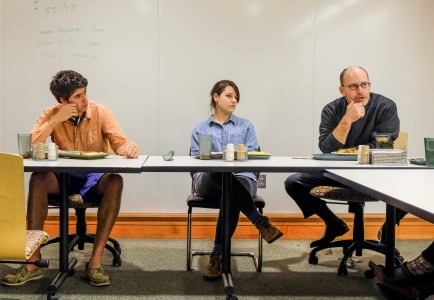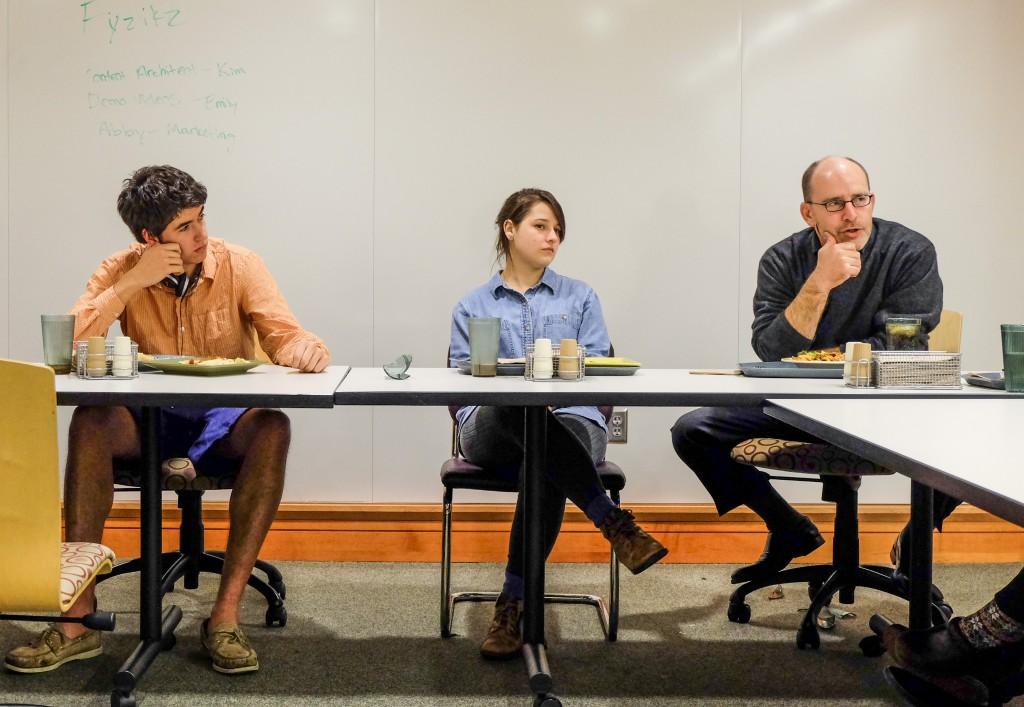Dave Mathias ’85 is a former political science major at Grinnell. He now works at Dell where his focus is IT and software asset management, asset recovery and recycling. He gave a talk on Tuesday discussing corporate responsibility, particularly in regards to the environment. The S&B’s Kevin Hong ’14 sat down with Mathias to discuss the IT industry and how it connects with the liberal arts.

What do you currently do at Dell?
I’ve been with Dell for 16 years. What I do now is I manage a team that is responsible for a hardware and software, primarily software, asset management program that is for a global customer that keeps its assets in one of our data centers. And so, what our mission and responsibility in this role is, is to help this customer understand what hardware is deployed within our data center, where is it in its life cycle and to ensure that the customer knows what software is installed on that hardware with an eye towards helping them maintain their compliance with all the terms and conditions of the software licenses associated with that hardware.
You majored in political science at Grinnell College. How did your interest shift to the IT industry?
After a number of years doing very typical Grinnellian things, like teaching English as a second language, writing grants, resettling political refugees, there was essentially a point in time when I kind of woke up and said, “I need to do something different. I need some reliability in my source of income.” And that was in 1997. Dell was in its early stages and it seemed like a smart bet. Yes, it took me out of my comfort zone, but what I think is interesting and potentially applicable to Grinnell students is that [in] those early days computation was my hobby. So I found a way to leverage and convert a hobby into a new career path. I would encourage folks to keep a hobby because you never [know] when it might be converted to something else.
Based upon your experience, how does a liberal arts background fit into working in the IT industry?
There’s an impression that because you are doing technology, you are only dealing with technology. The technology does not make any decisions for you. The technology doesn’t purchase anything. The technology doesn’t establish any standards or guidelines. It’s a people business. All business is people. And so liberal arts play directly to that. You can always acquire a learned technological component. It’s just a body of knowledge that can be acquired, just as what liberal arts graduates are accustomed to doing: dipping their toes into various waters. It’s really learning how to communicate with people that helps me in any environment.
What are your suggestions for Grinnell computer science majors?
I’m still trying to learn what the current state of affairs is with the computer science here. Just walking around the campus, I see a few posters for some events taking place … which I’m disappointed that I’ll miss, that speaks to the integration of technology into the liberal arts curriculum: what it means, what the direction is and what it is used for. In my field, the kinds of people that I’m looking for right now are folks that have some sophistication with regards to looking at large quantities of data, looking for anomalies. In Dell, in its recent acquisition of statistics with the move to the cloud, there are lots and lots of data being collected, lots of measurement points and data points, but the next move is to try to make sense of all the data collected.
What do you remember of graduating from college and what do you want to say to students who are graduating?
The thing I remember the most about being a graduate was being disappointed, having to enter the market of labor force and considering the possibility of finding a job. Grinnellians tend to think highly of themselves and they should, but you have to start somewhere, and so keep your eyes open. Look around and find a job, determine how you can add value and be tenacious. Being tenacious is something that Grinnellians may not always be good at. We have good ideas. Find a way to communicate those and find a way to put yourself in a position to realize them. Then you can write your own check.



















































